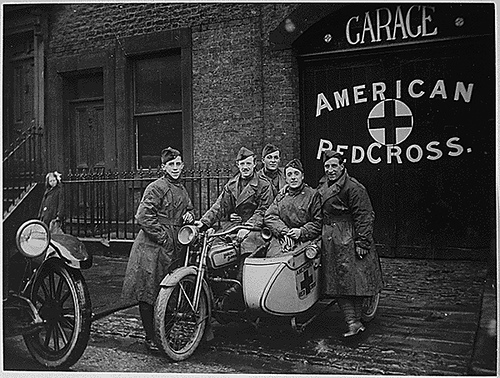In honor of Red Cross Month, we are highlighting this admirable organization and how it helps people across the country. We’re also filling homeowners in on how they can be better prepared to handle emergencies on their own, which can have some serious home insurance benefits.
The American Red Cross was founded more than 130 years ago to provide humanitarian aid to people across the U.S. It was President Roosevelt who named March Red Cross Month in 1943, and every president has done the same ever since.
The organization is well known for their blood drives, which the Red Cross started in 1941. After just four years they had collected over 13 million units of blood. Today, the Red Cross supplies 40% of the country’s blood – over 6 million units a year. The non-profit also organizes CPR and first aid courses around the country, and it mobilizes volunteers to help when disasters or emergencies strike.
Preparing for a Disaster with an Emergency Kit
One way you can do your part to help the Red Cross is by being prepared with an emergency kit. When a disaster strikes you can be left with little time to react. Your kit should include a number of essentials that are useful in a variety of situations. There should be enough supplies to last at least 72 hours.
- First aid kit – antiseptic, bandages, etc.
- Water – 1 gallon per person, per day
- Food – long-term stored food is the best option
- Waterproof matches
- Radio – hand crank or battery operated
- Flashlight with batteries
- Tarp or plastic sheeting
- Duct tape
- Can opener
- Garbage bags
- Local map
During emergencies and disasters utilities will likely be unavailable, so you should prepare accordingly. The Red Cross also suggests that people carry a Disaster Supplies Kit in their car.
Emergency Preparedness and Your Home Insurance
Taking precautions to keep your home protected from the unexpected will not only minimize potential damage and safeguard your assets, it will also help to reduce your insurance costs. Natural disasters cost insurance companies a lot of money each year, and homeowners that help to lower that cost will reap the rewards.
Here are some home improvements that can help protect your property and lower your insurance premiums.
- A roof that is wind resistant
- Storm shutters
- Storm doors
- Shatterproof windows
These improvements can have a significant impact in lowering rates, especially for those living in coastal regions. Once you’ve made these improvements, don’t forget to let your home insurance company know about it so they can update your policy. You can also call Biscoe Insurance Group to discuss additional home improvements that could potentially lower your premiums.
Image Source: www.flickr.com/photos/ooocha/2578148311
Original Source: http://www.mybiginsurance.com/homeowners-insurance/preparing-home-disasters-emergencies


